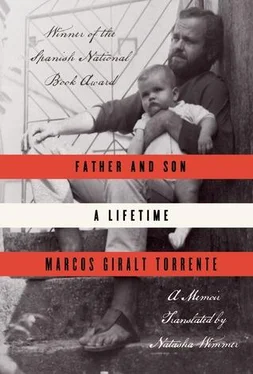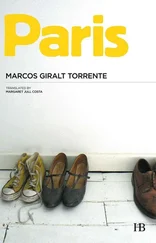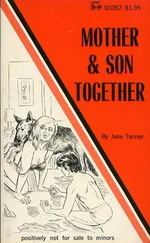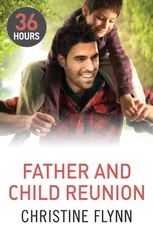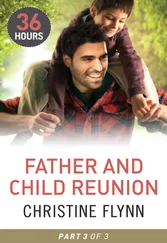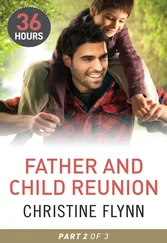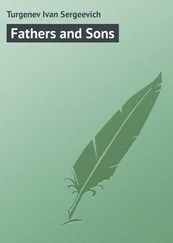Triangulation, concealment, exaggeration, cross-contamination … The fact is that I used my father. The substance of the book grew out of our deepest misunderstandings; I had him in mind in many passages; and I’d hate it if my memory of him should be tainted now in unjust retribution.
Fiction, even when it’s inspired by reality, obeys its own rules. It alters reality by pursuing different ends than those of fidelity to the truth. The fathers in my novels weren’t mine, and I want the father I write about here to be who he was to me.
I want to strip him of accretions.
I gave my two novels everything I had, I poured myself into them, and I’m still feeling the consequences today; I write against that.
Did he know it?
He must have known, I’m sure, that the intensity of what we shared at the end of his life would inspire me. When — on our last trip, chasing a hope that we knew was remote — I accompanied him on consecutive afternoons to the derelict hospital of an African island, he allowed himself to direct my gaze to our surroundings and even to give me an idea or two. He was already seeing himself from the outside, a dying hero from a Conrad novel. Take a good look at all of this, he advised me, because later you’ll be able to use it.
He probably knew I would want to make up for the times I had used him for my own ends.
But did he guess that there would be no masks, that it wouldn’t be fiction I would write this time?
In his excessive reserve, he would have recoiled at the idea, but as I’ve said, he changed so much toward the end that I can’t be sure. I suppose that when you face death, a new kind of logic takes over. The performance has ended. Your immortality is in the hands of others, and almost anything can be forgiven.
It’s odd, in any case, that in my previous books I was able to explore in depth thoughts that he inspired, and that now, face-to-face with him, I miss fiction.
* * *
From 1984 on, our lives hardly change. My father has become a problem for me. One among others. My mother weighs on me, for example. I feel the weight of her loneliness and my loneliness with her. But even here he’s somehow implicated. It’s his absence that heightens the loneliness.
After a very difficult year in which we go into debt and survive thanks to the help of my grandfather, between 1984 and 1990 my mother embarks on a new period of prosperity. Now she works in publicity, and again we spend without a thought for the future.
Between 1984 and 1990, I finish school and start college.
Between 1984 and 1990, I keep a list of the women I’ve slept with.
Between 1984 and 1990, I discover a love of late nights and I go out to bars where I meet other noctambulists like me.
Between 1984 and 1990, I not only read and write: by now I’m dreaming about becoming a writer. My father observes from a distance. He doesn’t show much interest, and when he does, I can’t tell from his tone, part incredulous and part skeptical, whether he approves or whether — as it occasionally seems — he’s trying to discourage me. Nevertheless, when in ’88 I publish my first article, he carries the clipping around in his bag for days to show to his friends.
Between 1984 and 1990, he continues to fix up places with the friend he met in Brazil. In personal matters, after endless bargaining, each of them has ceded enough to put their relationship on a solid footing.
Between 1984 and 1990, he gets past the worst of his crisis and returns tenaciously to painting after four years in which a new generation of artists has established itself. He shows in less prestigious galleries; he tries to find a niche for himself. He doesn’t always manage to attract the notice of the influence peddlers, the speculators in early fame, but he regains the respect of his fellow painters. He shows in 1984, in 1986, and again in 1987. These are the years that a critic of his work will describe as his time in the desert. It’s a titanic struggle, in which he’s obliged not only to see himself in the mirror of others with less talent but also to wrestle with many people’s lack of faith.
Between 1984 and 1990, the life he leads with the friend he met in Brazil settles into a pattern. They keep a place in Madrid, one that changes for the better as their joint business ventures prosper. They spend two months of the summer — sometimes three — at the beach and almost every winter weekend in the country. It’s a bourgeois existence that pleases them both, but my father must escape it to immerse himself in painting. It’s hard for him to adapt to such a conventional schedule. Not just where vacations are concerned, but also in daily life.
Between 1984 and 1990, I go out often with my mother. Her friends are writers, filmmakers, journalists; among them there are plenty of bon vivants and social butterflies. I accompany her to parties and book launches; we host dinners at home.
Between 1984 and 1990, I become aware of the fragile ground on which my mother and I tread, the little we’re left with if she takes a false step, but since she isn’t faltering now, I enjoy our run of good luck. I reign supreme. Everything around me is lax. I take what I want of what I’m offered. The only person I must yield to is my father, and only where he’s concerned do I feel that I’m deprived of anything.
Between 1984 and 1990, I become increasingly convinced that my needs are of secondary importance to my father, as am I myself.
Between 1984 and 1990, there are three men in addition to my father whom I see often enough to count as influences, after whom I model myself. My father isn’t the one in the ascendant, but he has the power to unman me with his aloofness, to drive me mad with his deficiencies.
And everything happens very quickly. I’m trying to reproduce that quickness now, in memory, aware that no single occurrence that I’ve described will explain who I am. Everything is insufficient or, at best, misleading.
In 1984, on the answering machine at the house my father shares with the friend he met in Brazil, I record the sound of a toilet flushing. I schedule an automated wake-up call for the middle of the night. In 1984 we fabricate a cast for my mother before the visit of a suitor whom she — as an excuse for not taking a trip with him — has told that she’s broken her leg. In 1984 I ask one of my mother’s friends to review a show of my father’s.
In 1985 I spend two weeks with my father and the friend he met in Brazil, our only vacation together. This is the summer that people start to talk about AIDS, and when we get back, I come down with a summer flu that I become convinced is a symptom of the disease. My father visits me one afternoon and puts an end to my delusions by taking me for some tests. That same summer, on the beach, I win his startled respect when I hook up with the one girl who catches his eye. What I don’t tell him is that both times we watched the sun come up together, all we did was make out.
In 1985 my cat has to be put to sleep. It’s my father who takes care of it.
In 1985 we put my mother’s place up for sale in order to move downtown. Afraid that we’ll squander the money, my father won’t help us in the search for a new apartment until the operation is irreversible, and feeling overwhelmed, I demand his help.
In 1986 there’s the NATO referendum, and my mother, my father, and I go to vote at the polling place in our old neighborhood, where my father is still registered. He does it grudgingly, as if it pains him to accompany my mother and me.
In 1986 my grandfather on my father’s side dies without knowing that my parents have been separated for ten years or being aware of the existence of the friend my father met in Brazil.
In 1986, the day before my father leaves for Warsaw for an artists’ conference in Eastern Europe, he informs us that in his absence my mother will receive a petition for divorce. We let him know that we’re unhappy that he’s chosen to do it this way rather than opting for a consensual divorce, and after my mother informs him that given the circumstances, she won’t make it easy for him, I walk him to the Metro in silence. My mother’s resolve lasts scarcely a few weeks. After discussing it with me, she calls a lawyer and gives him the go-ahead to take my father for all she can get, but when we have my father on the ropes, we relent. Before this, I write him a letter that the friend he met in Brazil intercepts and that earns me her deepest hostility, in which, with a temerity that ashames me now, I ask him not to marry her.
Читать дальше
